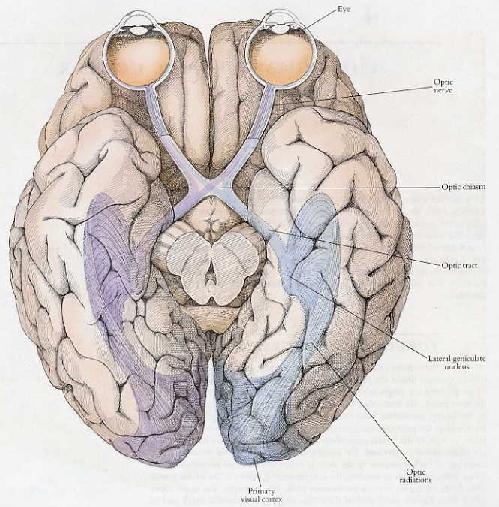 Self Alienation
Self Alienation 
Navigating
Karen Horney, M.D.
Neurosis and Human Growth: The struggle toward self realization. (1950)
origins | healthy imagination | fragmentation | warnings | vindictiveness
"the origins of the neurotic personality"
"The neurotic process is a special form of human development, and – because of the waste of constructive energies which it involves – is a particularly unfortunate one."
p. 13.
"I merely want to point out that one of the essential factors upon which the answer hinges is the quality of our belief about human nature."
p. 14.
"... liberating the forces of spontaneous growth."
p. 15.
The compulsive preoccupation with one's self happens to the exclusion of both interest in others and a healthy respect for your own personal limitations.
The centrality of the healthy imagination,
"Actually imagination also permeates all psychic and mental functions in the healthy person. When we feel the sorrow or the joy of a friend,it is our imagination that enables us to do so. . . .it is our imagination showing us possibilities."
p. 32.
She sees a four step process with three outcomes:
origins | healthy imagination | fragmentation | warnings | vindictiveness
5. Self-Hate and Self-Contempt
An inevitable end of a process beginning with a search for glory.
"a transformation of values into the phenomenon of neurotic pride."
"It is both intensified and complicated by another process operating simultaneously–a process which is seemingly opposite, though it is likewise initiated by self-idealization."
"And this actual being is such an embarrassing sight when viewed from the perspective of godlike perfection that he cannot but despise it. Moreover, what is dynamically more important, the human being which he actually is keeps interfering–significantly–with his flight to glory, and therefore he is bound to hate it, to hate himself."
p. 110.
6. Alienation from Self
"The real self...is the alive, unique, personal center of ourselves; the only part that can and wants to grow."
"lead to the formation of pride system which become autonomous and exerts a tyrannical and destructive power."
p. 153
C. "major solutions of inner conflicts"
7. General Measures to Relieve Tension
"All the processes described . . . bring about an inner situation that is replete with disruptive conflicts. unbearable tensions, and potential terrors. Nobody can function or even live, under such conditions."
p. 176.
"become familiar with certain measures aiming at relieving tension which operate all the time."
- Alienation from self (177)
- Externalization of inner experiences (178)
- compartmentalization (179) or "Psychic fragmentation."
- Automatic control (181)
- The neurotic belief in the supremacy of the mind. (182)
"no feeling for" yourself "as a whole organism, one in which every part is related to the whole and interacts with every other part."
"The neurotics active interest in disconnecting." (179)
"Not perceiving contradictory values coexisting in him/her." (180)
"The mind, finally is the magic ruler for which, as for God, everything is possible. Knowledge of inner problems no longer is a step toward changing, but knowing is changing."
"so there is an endless search for more knowledge." (pp. 184-185)
"All these measures in different ways relieve inner tension. . . . In other words these measures are partial solutions." Yet, "they give form and direction to the whole personality. They determine the kinds of satisfactions which are attainable, the factors to be avoided, the hierarchy of values, the relation to others."
p. 186.
"In all neurotic developments the alienation from self is the nuclear problem; in all of them we find the search for glory, the shoulds, the claims , the self-hate and the various measures to relieve tension.
. . . the kind of solution the individual finds for his intrapsychic conflicts."
"How do we experience ourselves?"
p. 187.
"But the existing bewilderment does appear in dreams."
p. 188.
origins | healthy imagination | fragmentation | warnings | vindictiveness
"We must keep in mind, though, that our desire for neat classification better satisfies our need for order and guidance than it does justice to the multifariousness of human life."
p. 190.
". . . is after all merely a means of looking at personalities from certain vantage points."
pp. 190-191.
self glorification, feeling of self importance, narcissism
"Experiencing things this way not only gives rise to such vindictive impulses as wanting to kill joy but produces a curious kind of callousness by stiflingly" your "sympathy for other's suffering."
p. 211.
". . .how great is the incentive to outgrow them?."
9. The Self-Effacing Solution:
the Self-Effacing Solution." represents a move in a direction which is in all essentials opposite to that of the expansive solution."
p. 214
"he tends to subordinate himself to others . . . he lives with a diffuse sense of failure (to measure up to his shoulds) and hence tends to feel guilty, inferior, or contemptible. The self-hate and self-contempt elicited by such a sense of failure are externalized in a passive way: others are accusing or despising him / her."
p. 215
"Among the three solutions of the inner conflict within the pride system the self effacing seems the least satisfactory one." because it "makes for a greater subjective feeling of unhappiness than the others."
p. 239
"Love, in the specific sense of erotic love, plays so peculiar and significant a role in his / her life that its presentation warrants a separate chapter. . . Erotic love lures this type as supreme fulfillment. Love must be and does appear as the ticket to paradise, where all woe ends; no more loneliness; no more feeling lost, guilty and unworthy; no more responsibility for self; no more struggle with a harsh world for which she / he feels hopelessly unequipped."
pp. 239-240.
origins | healthy imagination | fragmentation | warnings | vindictiveness
11. Resignation: The appeal of Freedom
"The third major solution of the interpsychic conflicts consists essentially in the neurotic withdrawing from the inner battlefield and declaring himself / herself uninterested."
"less bothered . . and can attain a semblance of inner peace."
p. 259
12. Neurotic disturbances in Human Relationships
"We have seen that every single intrapsychic factor can be externalized, and how radically this process modifies our attitudes toward others. . . . a survey of how in principle the pride system influences our relationship with others."
p. 291
13. Neurotic Disturbances in Work
"They may result from external conditions, such as economic or political pressures, lack of quiet, solitude, or time,or the difficulties–facing a writer who must learn to express herself / himself in a new language.
"but neurotic disturbance as they are carried to work,...linked up to our attitudes toward other people, superiors, subordinates, equals."
p. 309.
origins | healthy imagination | fragmentation | warnings | vindictiveness
"relates . . . to others in the spirit of mutuality."
"assume responsibility for" yourself
As we lose the neurotic obsession with self, . . . we become free to grow . . . to feel concern for other people. "
p. 15-16.
We will then want to give…to help them in whatever way possible to find and realize themselves when they are blocked in their development.…whether for ourselves or others, the ideal is the liberation and cultivation of the forces which lead to self-realization."
p. 16.
origins | healthy imagination | fragmentation | warnings | vindictiveness
Overview | morality | neurotic claims | origins of self-estrangement | tyranny of | therapy.
![]()
Writing | writing from texts | how to approach writing | writing papers | writing & world views
Science Index | Analysis | Population Index | Global Warming Index | Nature Index | Brief

